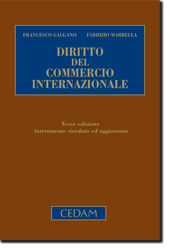UPDATE: THE FINAL SUBMISSION DATE FOR THE QUESTIONNAIRE HAS BEEN EXTENDED TO WEDNESDAY 15 JUNE. ALL THOSE WITH AN INTEREST IN THIS ASPECT OF THE FUNCTIONING OF THE ROME I REGULATION ARE ENCOURAGED TO RESPOND TO ANY PART OF THE QUESTIONNAIRE WHICH APPLIES TO THEM.
ALTHOUGH THE QUESTIONNAIRE IS DRAFTED WITH BUSINESSES AND LEGAL PRACTITIONERS IN MIND, OTHERS (E.G. ACADEMIC LAWYERS, GOVERNMENTAL AND NON-GOVERNMENTAL ORGANISATIONS) MAY COMPLETE PART 3 (POLICY OPTIONS) ONLY.
When the Rome I Regulation was finalised in 2008, certain questions concerning the effect of assignments upon third parties (e.g. judgment creditors, security holders, prior assignees of the same right) were left open. In this connection, the Commission undertook to prepare and submit a report on the question of the effectiveness of an assignment or subrogation of a claim against third parties, and the priority of the assigned or subrogated claim over a right of another person (Art 27(2)).
The British Institute of International and Comparative Law (BIICL) has been “Commissioned” to undertake a study upon which this report will, in part, be based. For the purposes of this study, BIICL has prepared a questionnaire concerning the role of assignments and the surrounding legal environment in transactions with a cross-border element. Answers to this questionnaire (involving requests for information about the nature and value of transactions undertaken, practical examples of the impact of legal regulation and views on policy options for a possible new EU conflicts rule in this area) will be used by BIICL in preparing its study report and submitted to the Commission as part of its impact assessment for any future proposal. Accordingly, the process is intended to enable EU businesses and members of the legal profession to make their views known at the outset of the review process.
As a member of the BIICL team, I would encourage all of you to take part in the study by (1) downloading and completing any parts of the questionnaire which apply to you (download here) and returning the form to Dr Eva Lein at the Institute (see contact details in the questionnaire), and/or (2) by forwarding this post to any business contact whom you think may have an interest in the subject matter of the study. Please also contact Dr Lein (e.lein@biicl.org) if you have any questions concerning the project or the questionnaire.
 The latest issue of the
The latest issue of the 